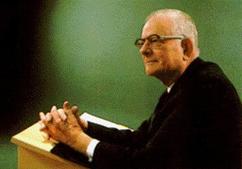
Does your workplace constantly have music in the background? Do you enjoy, find annoying, or just ignore? What effect does music have on employees? On customers? Does it affect productivity? What does the music say about your organization? Are there organizational policies about personal music in the workplace? Do you play your own music as a background to your work day? Do others?
A quick review indicates there is significant body of research addressing these questions. The New York Times discussed some of this research in an article last year. They cited Amit Sood, M.D., of the Mayo Clinic, suggesting 15-30 minutes of listening to music may help you refocus, concentrate better, best being music without lyrics. Teresa Lesiuk, Ph.D., of the University of Miami studied music and IT professionals. Her research suggested that allowing workers, who so desire, to listen to music they prefer can increase productivity. People varied in how much they listened to music, with older workers listening to music less. She concluded: “. . . over time, music listening based on workers’ choice to listen ‘when they want as they want,’ is beneficial for state positive affect, quality-of-work, and time spent on a task” (p. 188). On the other hand, the New York Times cited Paul Flaharty of Robert Half Technology that managers differ in what is expected in the workplace, that employees wearing headphones may be perceived as “rude”.
My take-aways:
1. I suspect very large individual, workplace, and organizational differences here. So many variables. However it is probably a good idea to have clear policies on individuals listening to personalized music in the workplace. Where is it OK? Not OK? Earphones? As to the effect on productivity, I would need to research the literature more fully.
2. Songs play in the background of my mind. They seem to come out of nowhere but are always there. When I awake. When my mind takes a break. This summer it has been the brilliant music of an older (larger unknown in the U.S.) Irish rock band, The Radiators from Space. The driving chiming Byrds-like guitars of “Trouble Pilgrim.” The pure punk clean out the brain sound of “Television Screen.” And the beautiful but sad “The Dark at the Top of the Stairs”, the most poignant song I have ever heard about the tragedy of 9/11. What is the role of music in your life?
Image of Michael Feinstein by Phil Konstantin. Used with permission. Source: http://commons.wikimedia.org/wiki/File:MichaelFeinsteinByPhilKonstantin.jpg
Lesiuk, T. (2005). The effect of music on work performance. Psychology of Music, 33(2), 173-191.
Padnani, A. (August 12, 2012). The power of music, tapped in a cubicle. New York Times, BU7.
“Without a Song”. (1929). Music by Vincent Youmans; lyrics by Billy Rose and Edward Eliscu. Originally published by Miller Music Corp. & Vincent Youmans, Inc.
© John Ballard, PhD, 2013. All rights reserved.






 RSS Feed
RSS Feed